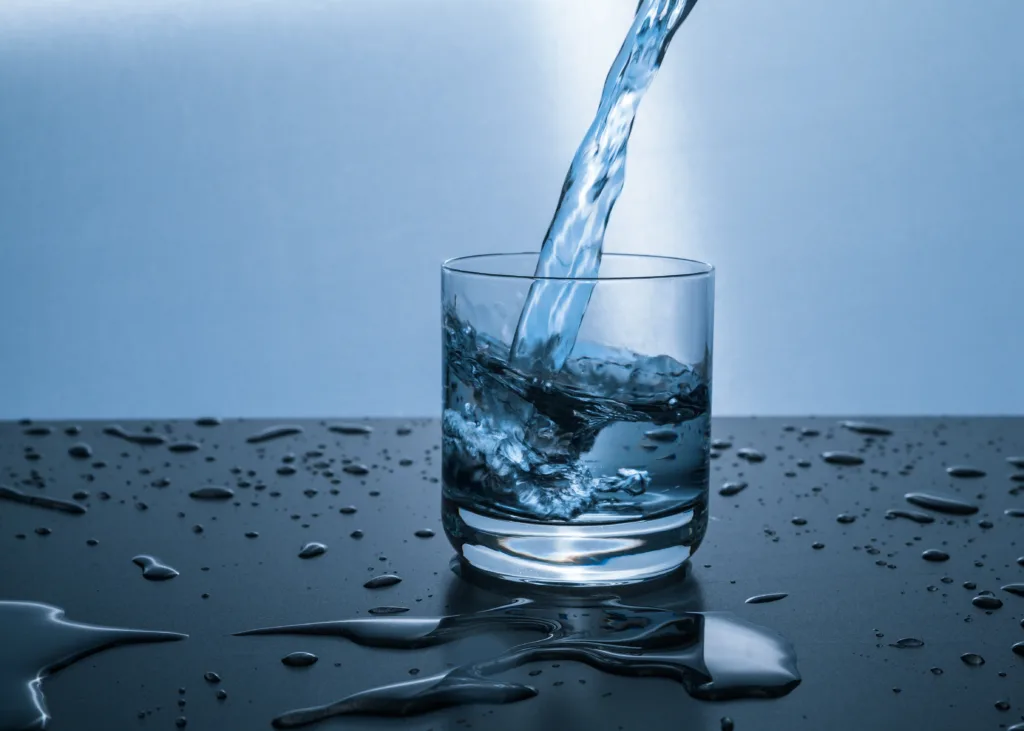Welcome to Water Wednesday! Today we’re diving into the science-backed benefits of staying hydrated for weight loss and tips to help you drink more water as part of a healthy lifestyle.
Drinking more water is essential for overall health, but it also plays a key role specifically in weight management. Research shows that proper hydration can boost metabolism, reduce appetite, shed water weight, and enhance exercise performance. Read on to learn how to harness the power of water for easier and more effective weight loss!
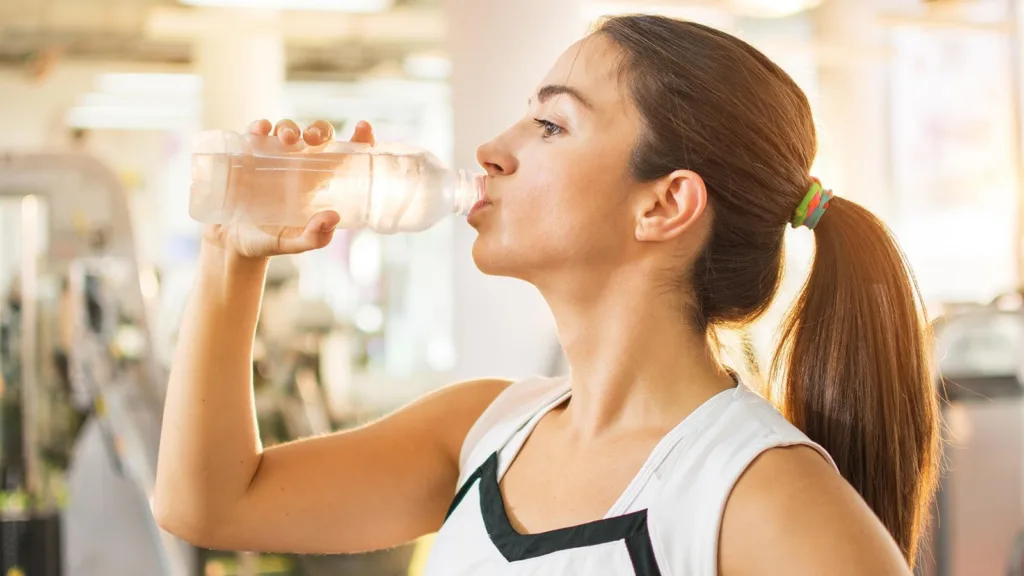
The Science Behind Water and Weight Loss
Most people are aware that water is important, but many don’t realize just how crucial more water is for so many aspects of weight control. Let’s break down the key mechanisms by which water contributes to fat burning and shedding excess pounds:
Water Increases Metabolism and Fat Burning
Drinking plenty of water, especially before meals, has been shown to temporarily increase metabolic rate by up to 30%! This is likely due to thermogenesis, which is essentially the energy (calories) required to heat more water to body temperature. Some of this metabolic boost comes from tapping into fat stores, thus enhancing fat burning.
Over time, staying well hydrated may also support a higher basal metabolic rate. This allows your body to burn slightly more water calories around the clock, versus operating in a dehydrated state. Even marginal metabolic improvements can make a big difference in long-term weight management.
One study published in The Journal of Clinical Endocrinology & Metabolism had participants drink about 17 ounces of water. Afterwards, their metabolic rate increased by 30% for both men and women. The effects lasted up to an hour. Incorporating more water first thing in the morning and before meals provides a consistent metabolism boost when you need it most.
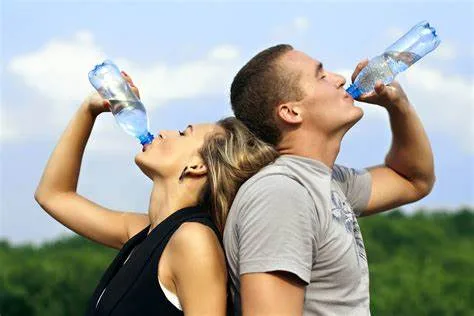
Water Reduces Water Retention and Bloating
Another way that maintaining good hydration by consuming more water helps minimize excess water weight is by reducing water retention. When your body is even mildly dehydrated, it tends to hold on to water as much as possible to preserve fluid balance. Unfortunately, this leads to swelling and puffiness.
Consuming more water, on the other hand, signals to the body that resources are plentiful so it can flush out excess fluids. This helps reduce bloating and slim your figure. Proper hydration also minimizes fluid retention triggered by excessive dietary sodium.
According to research in the Journal of Nutrition and Metabolism, drinking more water is beneficial for people prone to water retention due to high sodium intake. Participants who drank around 2 liters of water a day excreted more sodium through urine compared to those who drank less. Flushing out sodium can minimize bloat and swelling.
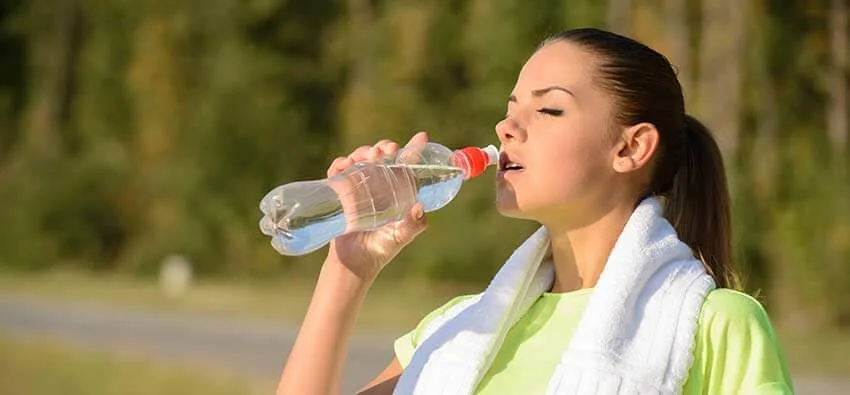
Water Helps Control Appetite and Reduce Calorie Intake
Research indicates that drinking more water, especially before meals, helps increase satiety and decrease hunger levels. Increased fullness from fluid volume may translate to eating less overall. Studies show adults who drink water before meals end up reducing calorie consumption by 13% or more!
Suppressing appetite and food intake is key for weight loss. Water is an easy, no-calorie tool that promotes satiety without added sugars that can hinder your diet. Drinking a glass or two of water 30 minutes before your meals may be a simple but impactful habit.
A study published in Obesity found that overweight and obese participants who drank more water, about 2 cups, right before eating a meal ended up consuming 75-90 fewer calories compared to days they didn’t preload with water. Their hunger levels and desire to eat were also significantly reduced. Making this pre-meal habit automatic can clearly benefit weight loss over time.
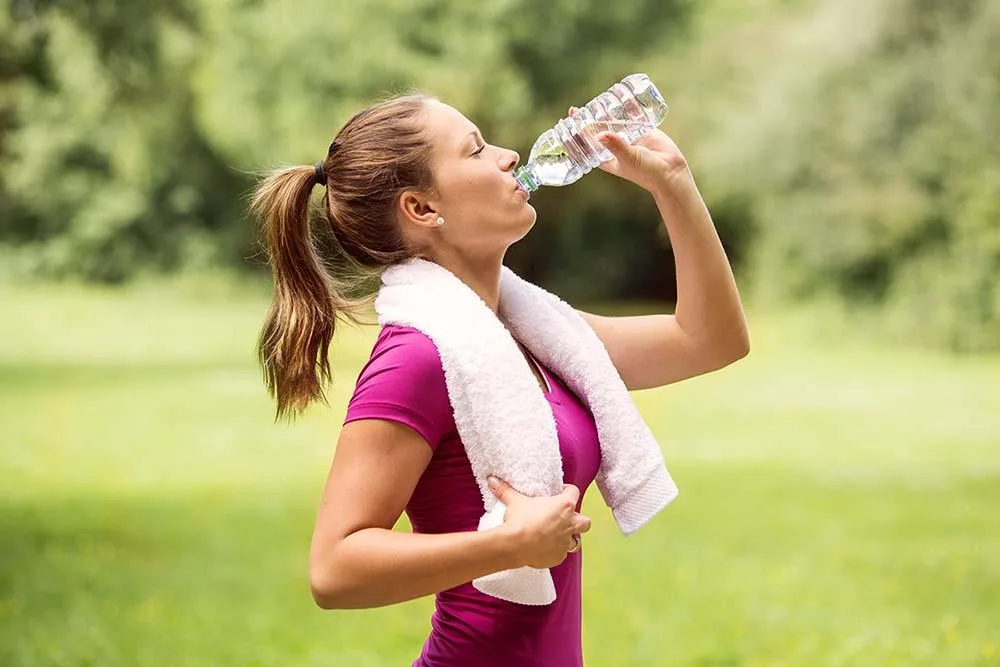
Tips for Drinking More Water for Weight Loss
Now that you understand the range of benefits proper hydration offers for losing weight, let’s talk about practical tips for making it happen:
Calculate How Much Water You Need
As a general guideline, aim for at least eight 8-ounce glasses of water per day. However, your optimal amount depends on several individual factors like weight, climate, and activity level. You may need more if you live in hot environments, exercise daily, or eat a lot of salty foods.
Use a calculator online to determine your recommended daily water intake. Or speak with your doctor for personalized hydration goals. Tracking intake with an app or journal can help ensure you meet your mark.
Here are some quick calculations you can use:
- Take your weight in pounds and divide by 2. That equals the number of ounces of water to drink daily. So if you weigh 160 lbs, you need 80 oz water per day.
- Drink at least 15.5 ounces per hour of exercise. So for a 60 minute workout, have about 24 ounces before and after.
- Add 8 ounces for every 10-20°F over 60°F if you live in hot climates.
Carry a Reusable Water Bottle Everywhere
One of the easiest ways to drink more water is always having it readily available. Carry a refillable water bottle with you throughout your day – at home, work, running errands, traveling, or working out. This makes it simple to sip steadily all day long so water becomes a habit.
Choose a bottle you love – whether it’s sleek metal, colorful plastic, or insulated for temperature control. Having an eye-catching reminder nearby nudge you to keep reaching for it. Look for volume markings to track intake and stay motivated toward your daily goals.
Set Reminders to Drink Water Throughout the Day
Even with water readily available, it’s easy to get distracted and forget to drink consistently. Set reminders on your phone, watch, or calendar app to stay on track. Aim to drink roughly 8 ounces every hour or couple of hours at minimum.
Scheduling water breaks between activities, before meals, when taking medication, or during TV commercial breaks are other easy ways to work it into your routine. Before you know it, hydration will become second nature.
Here’s a sample schedule you could follow for reminders:
- 8 oz after waking up
- 8 oz mid-morning
- 8 oz before lunch
- 8 oz mid-afternoon
- 8 oz before dinner
- 8 oz during or after dinner
- 8 oz before bedtime
Add Fruit or Herbs for Flavor If Needed
While pure water is ideal, some people struggle with the lack of taste. Don’t force yourself to drink plain water if you find it unappealing. Instead, jazz it up with sliced fruit, fresh herbs, cucumber, lemon, or antioxidant-rich teas.
Create infused water by adding your favorite flavor combos to a pitcher or bottle of cold water. This provides a hint of taste and aroma while still keeping calories at zero. We recommend starting with gentle flavors like lemon, lime, mint, or melon so the water remains refreshing.
Some easy infused water recipes to try:
- Lemon Cucumber Water
- Strawberry Basil Water
- Pineapple Mint Water
- Orange Blueberry Water
- Apple Cinnamon Water
Drink a Glass of Water Before Meals
As mentioned earlier, research confirms that drinking water 30 minutes before meals can significantly reduce calorie intake. The combination of fluid volume and stimulation of metabolite-sensing osmoreceptor cells promote satiety.
Aim to drink 1-2 cups (8-16 oz) of water about 30 minutes prior to each meal. You can also sip some during the meal if desired. This simple habit trains your body to start feeling fuller sooner while eating the same portions. Over time, you may decrease portions naturally without hunger or willpower struggles.
Here’s a tip: Set a phone alarm 30 minutes before your typical mealtimes as a reminder to drink up. Having the visual or audio cue makes it much easier to form a habit. After a couple weeks, it will feel automatic. Give it a try!
The next time you sit down for breakfast, lunch or dinner, remember to drink up first! Staying well hydrated is crucial for your health and can be a powerful ally in your weight loss efforts.
We hope these tips motivate you to drink more water as part of your healthy lifestyle. Let us know if you have any favorite tricks for staying hydrated! Wishing you all the best on your wellness journey. Happy Water Wednesday!
Thank you for reading this post, don't forget to subscribe to our free newsletter
!